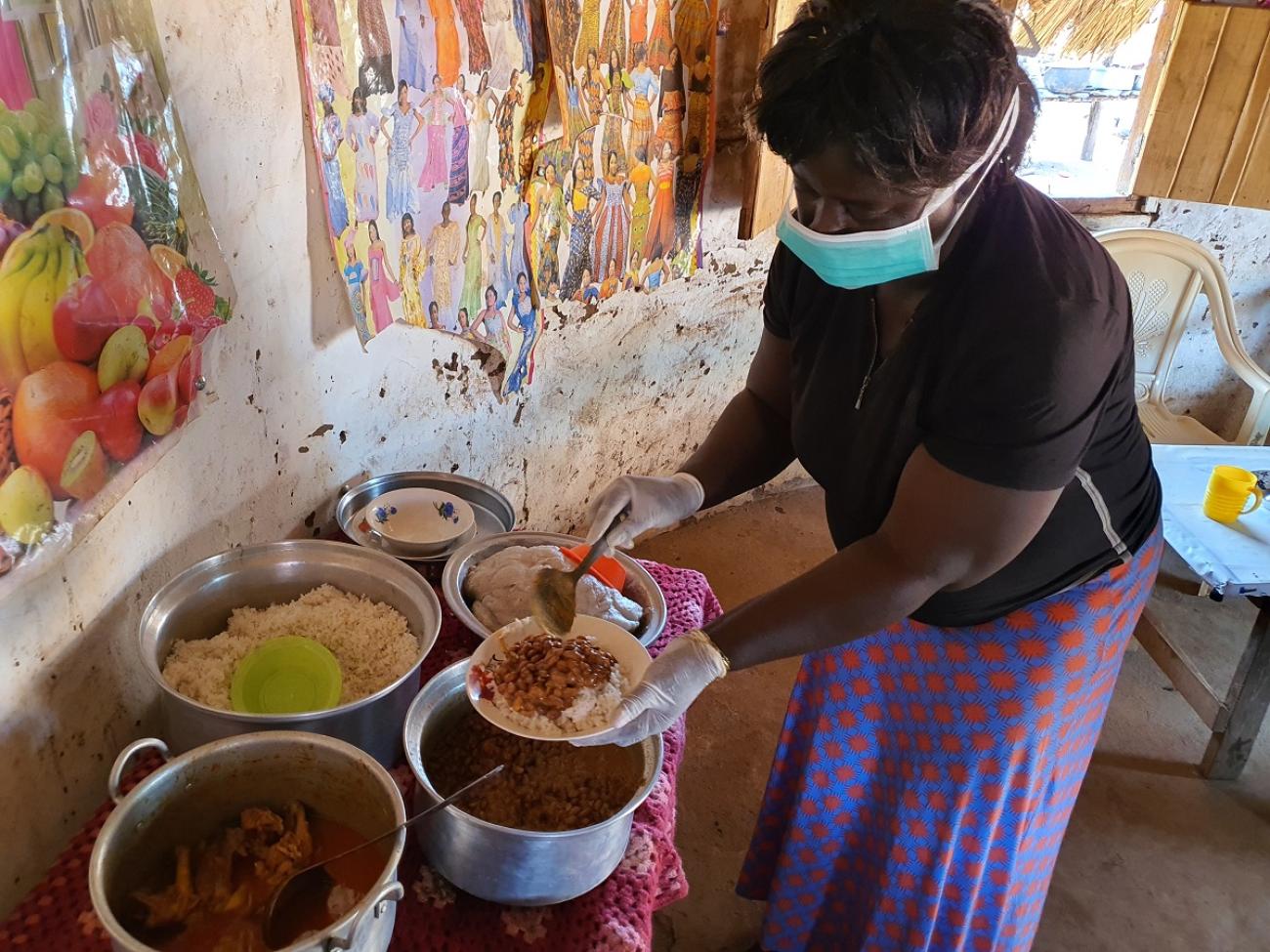Rising and thriving in South Sudan

How one women found refuge and opportunities in a country of conflict
Etabe Ansett does not know when she will ever be able to go home. The 38-year old mother of three fled her native Democratic Republic of the Congo (DRC) following an attack by the Lord’s Resistance Army (LRA) on her village in the restive north-east region in 2010. It’s been a decade and she has not been back.
She and more than 5,000 other refugees from the Central African Republic, the DRC, Eritrea, Ethiopia and Sudan now live at Makpandu Refugee Camp, 45km east of Yambio in Western Equatoria, in South Sudan.
Whilst she misses her native home, she has decided it is best to only look forward.
Hers is not a story of dejection and defeat. Rather, this is a story of the rise of one woman from refugee to a savvy businesswoman who has put her traumatic past behind her. Thanks in part to a little help from the World Food Programme (WFP) and the United Nations High Commissioner for Refugees (UNHCR), using funds from Australia, Canada, the European Union, Germany, the Republic of Korea, the United Kingdom and the United States.
Etabe is quick to spot a business opportunity.
“I began my first business selling tea,” she explains. Etabe later opened a restaurant in the camp in 2015 which has enjoyed considerable success. She has also been able to supplement her income thanks to the Smallholder Agriculture Market Support (SAMS), a WFP initiative which allows farmers to sell their produce to high-quality buyers including WFP in Rural Aggregation Centres (RACs
In 2019, Etabe cultivated one plot of land and got a tonne of maize. She sold part of it to WFP and used the remainder to feed her family, expand her business, and buy clothes for her children.
Across Africa, smallholder farmers lose up to 30 per cent of the crops harvested to disease, pests, rot — all caused by poor post-harvest handling and storage. With SAMS, farmers like Etabe, receive training on post-harvest handling of cereals, effective agricultural methods to increase crop yields, and environmental management.
In November 2019, a Rural Aggregation Center was established at Makpandu Refugee Camp. It ushered new opportunities for Etabe and many like her.
“Before the RAC establishment at the camp, women cultivated maize and used it to brew alcohol which led to violence in the camp. We are happy that instead of brewing alcohol we can now sell the maize at the aggregation centers and get money,” explains Etabe. “It was last year that I got involved in farming when I learned of SAMS. Initially it was very difficult because of the uncertainty of the market. But I can assure you that it is attractive due to the presence of aggregation centers.”
Hard work is the mainstay of her winning formula. On a typical day, Etabe wakes up at the crack of dawn and begins working in her restaurant. At 3pm she heads to the farm to cultivate. On Fridays and Saturdays, she spends the whole day cultivating.
Like all business owners, she has had to shift gears with the emergence of COVID-19. Thankfully, business is still booming for Etabe. She is fully aware of the new standards for hygiene and protection and takes them very seriously. Etabe adheres to strict precautionary measures to ensure that her family and customers are safe. There is a hand-washing station in her restaurant, and s
Etabe does not look back. She has a few words of advice for refugees like her.
“As a role model, people listen to me,” she says brimming with confidence. “I have tried different businesses, including selling charcoal all the way in Juba.”
And she is not looking back.
“I am part of the camp management committee and I always provide advice for refugees to strive to sustain themselves.”
In true Etabe style, she doesn’t seem like she knows how to stop. “I encourage everyone in the camp to take advantage of farming. All of us need to make use of the opportunities presented to change our lives for the better.”






